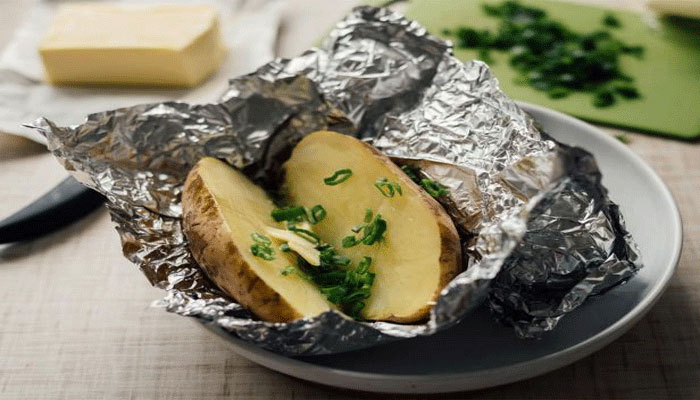
You will likely use aluminium foil to cook anything you bake, roast, or prepare for supper tonight, such as fish or meat. You might not be aware, but some of the foil will contaminate your food, which could be harmful to you.
Aluminum is the most widely used cookware material in developing nations. It's not just found in foil. It's used to line pots and pans and is present in some kitchen utensils, such as large serving spoons.
Copper is used to serve this purpose, but over time, aluminium has taken its place because it is easier to clean and can be produced in larger quantities at a lower cost.
While using aluminium cookware is generally not a bad idea, covering food with foil and baking it in the oven can present certain challenges. This is particularly valid for hot, acidic, or spicy food preparation.
Aluminium and health
Small amounts of aluminium can be excreted by human bodies quite effectively. As a result, there is no harm in a small amount of aluminium exposure
The World Health Organisation (WHO) has set a safe daily intake of 40 mg per kilogram of body weight. Therefore, the permitted intake for a 60kg person would be 2400mg.
However, the majority of people consume and are exposed to far more than this recommended safe daily intake. Corn, yellow cheese, salt, herbs, spices, and tea all contain aluminium.
In addition to the previously mentioned uses in cooking utensils, it is also a component of pharmaceutical products like antacids and deodorants.
Aluminium sulfate, a product of aluminium extraction, is employed as a coagulant in the drinking water purification process.
Researchers are looking into the possibility that excessive aluminium exposure could be harmful to people's health. For example, it has been found that the brain tissue of Alzheimer's patients contains high levels of aluminium.
Researchers have studied the elderly population affected by Alzheimer's and conclude that the disease is a contemporary one, resulting from changed living circumstances brought on by society's industrialization.
Among these conditions could be high exposure to aluminium in daily life.
Aluminum also has additional health risks. Research has indicated that certain patients with bone diseases or renal impairment may be adversely affected by a high intake of aluminium. It also lowers the rate at which human brain cells proliferate.
Avoid foil when cooking
When cooking, it's critical to ascertain the aluminium concentration because of all these established dangers. Cookware, including pots, often oxidizes, forming an inert layer that stops aluminium from leaking into food.
The issue is that this layer wears off when you scrub your pots after cooking, which allows the aluminium to contaminate your food. This can be easily prevented by repeatedly boiling water in new aluminium pots until the base becomes matte. This stops leaching by causing natural oxidation.
While they may appear more presentable after being cleaned and polished, a matt base is healthier for your food and your body.
Aluminium is significantly more likely to leach into food, and at higher levels, in acidic and liquid food solutions like lemon and tomato juice than in those containing alcohol or salt.
Leaching levels climb even more when the spice is added to food that’s cooked in aluminium foil. Anything acidic sparks a particularly aggressive process that dissolves layers of aluminium into food.
Aluminium foil should not be used for cooking. Instead, it is recommended to use glassware or porcelain when preparing baked dishes. It’s safe to wrap cold food in foil, though not for long periods because food has a shelf life and because aluminium in the foil will begin to leach into the food depending on ingredients like spices.
















